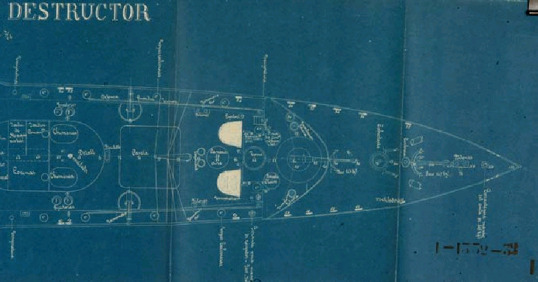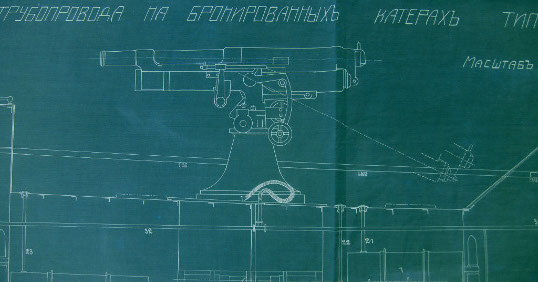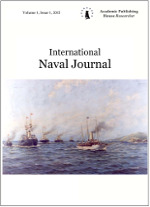1 December 17, 2024
Articles
1. Jaroslaw I. Golovač
The First 50 Days of the River War on the Middle Volga (June – July 1918)
International Naval Journal. 2024. 12(1): 3-21.
Number of views: 149 Download in PDF
2. Nicholas W. MitiukovInternational Naval Journal. 2024. 12(1): 3-21.
Abstract:
Much was written about the battles of the Red sailors in the summer and autumn of 1918 in the central part of the Volga in Soviet times. In the 1990s, studies and memoirs of their opponents were published. Based on these two groups of sources, the work provides a comprehensive reconstruction of the events on the Volga in June-July 1918. They are characterized by an almost complete lack of combat experience on both sides. Therefore, this period can be appropriately called a period of trial and error: both the Reds and the Whites made mistakes. But they had the most fatal consequences for the Reds, and a series of betrayals by some senior officials also had a significant impact, which ultimately led to a crushing defeat for the Reds on the Volga and the abandonment of huge regions. However, we must give them credit, they did not resign themselves to defeat, but took into account the experience gained, were able to accumulate strength and eventually take revenge.
Much was written about the battles of the Red sailors in the summer and autumn of 1918 in the central part of the Volga in Soviet times. In the 1990s, studies and memoirs of their opponents were published. Based on these two groups of sources, the work provides a comprehensive reconstruction of the events on the Volga in June-July 1918. They are characterized by an almost complete lack of combat experience on both sides. Therefore, this period can be appropriately called a period of trial and error: both the Reds and the Whites made mistakes. But they had the most fatal consequences for the Reds, and a series of betrayals by some senior officials also had a significant impact, which ultimately led to a crushing defeat for the Reds on the Volga and the abandonment of huge regions. However, we must give them credit, they did not resign themselves to defeat, but took into account the experience gained, were able to accumulate strength and eventually take revenge.
Number of views: 149 Download in PDF
Barges of the Kronstadt Port in the Second Half of the 1920s
International Naval Journal. 2024. 12(1): 22-34.
Number of views: 136 Download in PDF
3. Andrey I. RozhkovInternational Naval Journal. 2024. 12(1): 22-34.
Abstract:
By the mid-1920s, many of the pre-revolutionary floating craft of the Kronstadt military port were lost, written off, or transferred to other organizations. On the other hand, the lists included barges that arrived from Finland and were transferred from the Kronstadt Fortress. They were also numbered, so the numbers were duplicated. As a result, on April 2, 1926, in order to streamline the numbering, all floating craft of the Main Military Port were renumbered. We have previously shown that until 1926, the numbering of the floating craft of the Kronstadt port remained unchanged since pre-revolutionary times. On the other hand, from 1931 to the end of 1940, the numbering was also constant. New vessels received numbers instead of the excluded ones, and the rest of the floating craft were listed with unchanged numbers throughout this period. The work analyzes the order of April 2, 1926, since it allows us to “glue” two fragments of the ship biographies. It is concluded that this order allows us to “glue” only the biographies of praams No. 1 to No. 15. However, there is uncertainty with praams No. 16 to No. 20. Obviously, these numbers were given to praams that were out of order in 1926, gradually being repaired and put into service. As for the rest of the floating craft, primarily barges, it is shown that between 1926 and 1931 there was another order on renumbering. If the renumbering scheme for sanitary barges can be reconstructed relatively easily, it is difficult to do so for coal, artillery and dry cargo barges due to the presence of similar vessels. In addition, it has been established that the floating craft of the Kronstadt Fortress were also renumbered between July and October 1925, before being transferred to the Kronstadt port.
By the mid-1920s, many of the pre-revolutionary floating craft of the Kronstadt military port were lost, written off, or transferred to other organizations. On the other hand, the lists included barges that arrived from Finland and were transferred from the Kronstadt Fortress. They were also numbered, so the numbers were duplicated. As a result, on April 2, 1926, in order to streamline the numbering, all floating craft of the Main Military Port were renumbered. We have previously shown that until 1926, the numbering of the floating craft of the Kronstadt port remained unchanged since pre-revolutionary times. On the other hand, from 1931 to the end of 1940, the numbering was also constant. New vessels received numbers instead of the excluded ones, and the rest of the floating craft were listed with unchanged numbers throughout this period. The work analyzes the order of April 2, 1926, since it allows us to “glue” two fragments of the ship biographies. It is concluded that this order allows us to “glue” only the biographies of praams No. 1 to No. 15. However, there is uncertainty with praams No. 16 to No. 20. Obviously, these numbers were given to praams that were out of order in 1926, gradually being repaired and put into service. As for the rest of the floating craft, primarily barges, it is shown that between 1926 and 1931 there was another order on renumbering. If the renumbering scheme for sanitary barges can be reconstructed relatively easily, it is difficult to do so for coal, artillery and dry cargo barges due to the presence of similar vessels. In addition, it has been established that the floating craft of the Kronstadt Fortress were also renumbered between July and October 1925, before being transferred to the Kronstadt port.
Number of views: 136 Download in PDF
Analysis of the Weight Load of Italian Cruisers of the Second World War
International Naval Journal. 2024. 12(1): 35-59.
Number of views: 145 Download in PDF
4. Vladislav V. ZhdanovInternational Naval Journal. 2024. 12(1): 35-59.
Abstract:
A comparative analysis of the weight loads of Italian cruisers of the Second World War among themselves and with the weight loads of cruisers of other countries was carried out. With the exception of the “Condottieros” of the first two series, the Italian cruisers of the Second World War, both light and heavy, turned out to be successful: light, seaworthy, strong hulls. Powerful, light, reliable, with sufficient efficiency for the Mediterranean Sea, mechanisms, good armor, but saving on the weight of the armament practically devalued, in general, good ships. The low weight of the armament was due to the light weight of the main caliber turrets. Dividing Italian heavy cruisers into two generations is incorrect. The Italians built heavy cruisers of one generation, but of two different concepts: the first was faster, the second was better armored.
A comparative analysis of the weight loads of Italian cruisers of the Second World War among themselves and with the weight loads of cruisers of other countries was carried out. With the exception of the “Condottieros” of the first two series, the Italian cruisers of the Second World War, both light and heavy, turned out to be successful: light, seaworthy, strong hulls. Powerful, light, reliable, with sufficient efficiency for the Mediterranean Sea, mechanisms, good armor, but saving on the weight of the armament practically devalued, in general, good ships. The low weight of the armament was due to the light weight of the main caliber turrets. Dividing Italian heavy cruisers into two generations is incorrect. The Italians built heavy cruisers of one generation, but of two different concepts: the first was faster, the second was better armored.
Number of views: 145 Download in PDF
Victory Trophies in Berezniki
International Naval Journal. 2024. 12(1): 60-68.
Number of views: 143 Download in PDF
5. International Naval Journal. 2024. 12(1): 60-68.
Abstract:
During the Great Patriotic War, the USSR river fleet suffered significant losses, which had a serious impact on its capabilities. Thousands of vessels, both self-propelled and non-self-propelled, were destroyed during combat or captured by the enemy, which created the need for urgent replenishment. In 1945, after the end of the war, the Main Trophy Directorate of the Red Army, together with representatives of the People's Commissariat of the River Fleet, began work on inventorying and assessing the river fleet found in East Germany. This event was an important step in the restoration of river transport, which played a key role in providing the country's economy. Each vessel found on the rivers received a unique alphanumeric transit number, which simplified its accounting and further operation. Between 1945 and 1948, the USSR received reparation ships that were used to transport various cargoes, from coal to equipment and passengers. The Kama River Shipping Company, one of the largest in the country, also received a significant number of German ships, which allowed it to continue its operations in the post-war period. The proposed work is devoted to the analysis of the process of integration of reparation ships in the Berezniki port of the Kama River Shipping Company.
During the Great Patriotic War, the USSR river fleet suffered significant losses, which had a serious impact on its capabilities. Thousands of vessels, both self-propelled and non-self-propelled, were destroyed during combat or captured by the enemy, which created the need for urgent replenishment. In 1945, after the end of the war, the Main Trophy Directorate of the Red Army, together with representatives of the People's Commissariat of the River Fleet, began work on inventorying and assessing the river fleet found in East Germany. This event was an important step in the restoration of river transport, which played a key role in providing the country's economy. Each vessel found on the rivers received a unique alphanumeric transit number, which simplified its accounting and further operation. Between 1945 and 1948, the USSR received reparation ships that were used to transport various cargoes, from coal to equipment and passengers. The Kama River Shipping Company, one of the largest in the country, also received a significant number of German ships, which allowed it to continue its operations in the post-war period. The proposed work is devoted to the analysis of the process of integration of reparation ships in the Berezniki port of the Kama River Shipping Company.
Number of views: 143 Download in PDF

















